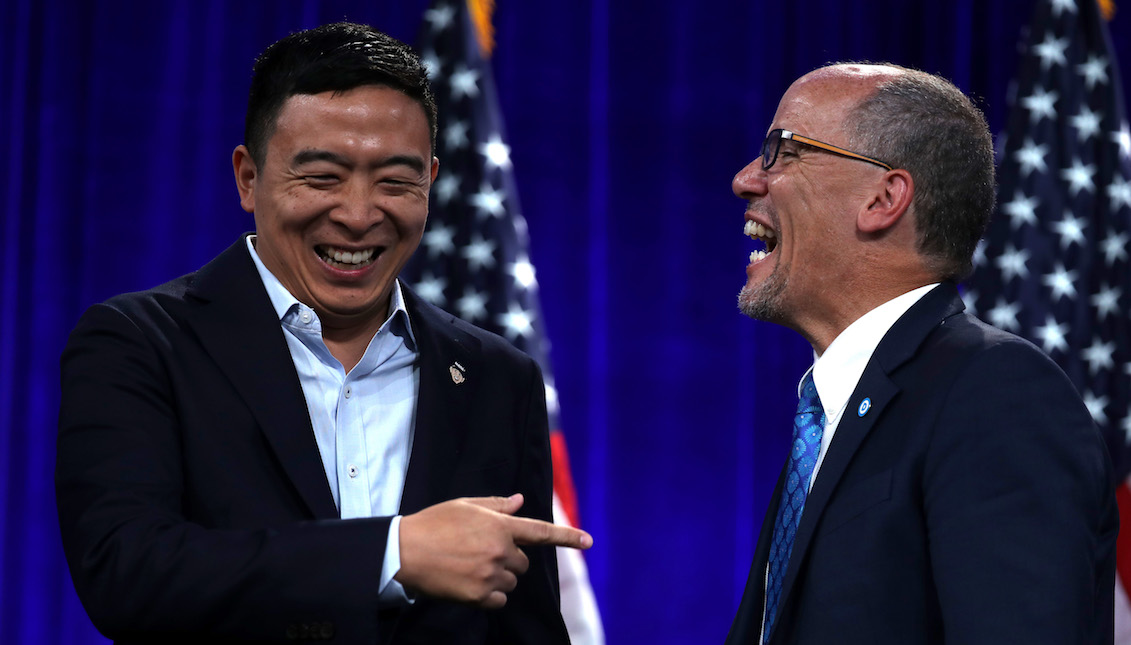
Democrats and Climate Change: Between hot air and lobbyists
Democratic primary candidates promised several aggressive strategies to combat climate change - but DNC interests could be stronger.
In one of the most packed presidential races in U.S. history, Democratic candidates have a lot to talk about.
It’s not just the amount of material that President Donald Trump has easily given them; there are also the particular circumstances that the country - and the world - must face in this era.
One of the most significant is the threat of climate change.
During the first televised forum on climate change, the Democratic candidates promised a wide range of measures against the environmental threat, including taxes on carbon emissions, undoing the Trump administration's policies and multi-million dollar investment in renewable energy.
While almost everyone committed to rejoining the Paris climate agreement, the proposals of the majority of the candidates included multilateral cooperation with foreign countries, either in the development of new technologies or in trade projects – something that will not sit well in the spirits of the country's big fuel companies.
For example, given the promise of candidates to impose a tax on carbon emissions, the American Energy Alliance immediately issued a statement that looked like the preamble to a threat:
“Tonight, while American families worry about making ends meet, the Democrats running for president will be working hard to outbid each other on who can raise electricity and gasoline prices the highest, and the fastest,” the alliance said in an emailed statement.
If this sounds like Republican propaganda to you, it’s because the issue of climate change itself has become a political question.
That is to say, climate change has become a thorny issue for those who compete for the Democratic nomination to face Donald Trump next year in the presidential elections.
The chairman of the National Democratic Committee, Tom Pérez, published a column in Medium last June in which he argued that the large number of issues that candidates had to address made it more difficult to focus only on climate change.
Two months later, Pérez introduced a resolution to the committee “recommitting” the Democratic Party to the fight against climate change, but it contained a section conditioning the type of debates that could be carried out in this regard, proposing only two events focused on the issue sponsored by CNN and MSNBC.
RELATED CONTENT
The restrictions imposed by the chairman of the committee did not take long to provoke a wave of complaints about the alleged hidden interests of the party.
For Jeremy Symons, former vice president of political affairs at the Environmental Defense Fund, "the DNC’s inaction on a climate debate is especially troubling in light of the Party's long dependency on the fossil fuel lobby to fund conventions."
In his opinion column for The Hill, Symons exposes how giants of oil and natural gas companies such as the American Petroleum Institute (API) have collaborated with up to $700,000 for Democratic conventions, which represents only $200,000 less than what they usually offer to the GOP.
Similarly, coal lobbying, represented by Duke Energy, contributed up to $6 million to the DNC during 2012.
These manipulation strategies are just another ploy of private interests to “lull Democrats to sleep on climate, joining their Republican colleagues in inaction if not words by keeping climate in the back burner,” explains Symons.
"It's a tempting lullaby for political operatives," he concludes. “The planet doesn’t have a bank account. Fossil fuel lobbyists pay well and pay often.”
The question is simple: Will the candidates really be able to bypass the DNC's private pacts and be consistent with what they preach, or will the 2020 elections be decided again by the poisonous lobbying?











LEAVE A COMMENT: